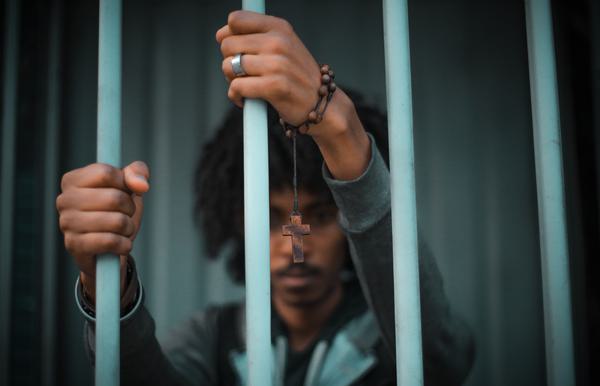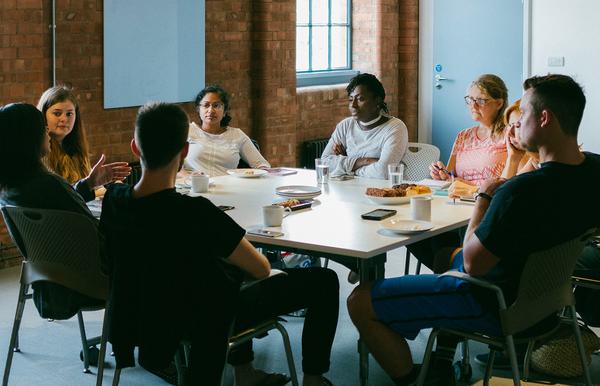Everyone is doing theology, but do they know it? David Bailey gives some final thoughts in a conversation about theological shorthand and youth ministry.
This blog is a response to Phoebe Hill’s post, which responded to David Bailey’s initial post about theological shorthand and youth ministry. It’s the climactic finale to a niche but important trilogy.
Phoebe is a kind and generous critic, her comments are very helpful and insightful – so just a few thoughts from me to keep the conversation going!
There are a number of creative tensions within my work that are helpful to think through. For those following this blog conversation (is that a thing?), it’s useful to think through the context in which I use theological shorthand – the book goes into more depth – otherwise we are having shorthand blog conversations! Furthermore, how we speak about Yahweh is always incomplete, coming from a provisional, contingent and culturally bound perspective. Our theology is always evolving as we balance what is known/ and unknown, with what we experience, see/ don’t see – it cannot be otherwise.
Hill highlights that the undertone to my work is that that youth ministers are partly to blame for the deficit in theological articulation. My intention was not to blame, but to explore, so if this doesn’t come across, my apologies. The book is limited and provisional – there is always more to say, or things I might say differently now – but the book hopes to both celebrate the long-term sacrifices made by youth ministers in their service to young people, but also critique the theological articulation of practice – as Hill attentively points out.
Something for everyone
Therefore, rather than blame, I would want to use the word responsibility (I appreciate this is not a ‘cool’ word!). I wonder if youth ministers have a responsibility to explore the Christian story, tradition and the theology bound up in all of this – to develop theological literacy. In fact, I think Hill begins to answer the questions about whether it is appropriate to explore a deeper understanding of theology when she notes that we are in fact all doing some kind of theology – it just depends at how good we are at thinking theologically, how aware we are. For me, this should go beyond the expert or the academic, however helpful those wider conversations are. Youth ministers, young people, adults and congregations should participate in the theological task. It also goes beyond the perceived learning preferences of reflector or activist – these are not set and we can learn to move between them when the learning is relevant, dialogical and contextual.
Therefore, Hill’s point about how the youth ministry community comes together to wrestle with theological ideas is very important and resonates with the final chapter of the book. Here, I highlight that it requires a community to explore the deeper and richer world of theological thought, seeing the importance of the theological virtues of faith, hope and love, and recognising the difference between knowledge and wisdom.
"How we speak about Yahweh is always incomplete...provisional, contingent and culturally bound...our theology is always evolving as we balance what is known/ and unknown, with what we experience, see/ don’t see – it cannot be otherwise."
In fact, I wonder if Hill’s comments resonate with Wenger’s idea of communities of practice, but in exploring theology I think we need to move beyond the youth ministry tribe or bubble. Perhaps what is needed is the wisdom of people from different generations to discern theological thought, because sometimes theological problems go across time and space, across decades, even centuries – requiring challenge, reflection, hindsight and time to see and correct. Some Christians’ involvement and non–action about slavery in the late 18th Century is an example of this, which of course, was then championed by Christians, but not before considerable resistance. A more contemporary illustration is seen in the struggle by LGBTQ+ Christians; perhaps, in future generations, the marginalisation of this group will be seen in the same light to how abhorrent slavery is now?
Story & responsibility
Furthermore, the word responsibility is helpful (I think!) because in exploring a deeper theology and in developing theological literacy we have the opportunity to learn from our tradition and story. I recognise that it does require some work or occasional theological heavy lifting, and perhaps a certain set of skills and quirky passion (!). Yet, the responsibility to learn about our story, tradition, our family history if you like, in the development of theological thought is key in learning from the past and from our mistakes. It is why untethering youth ministry from the story that birthed it is problematic.
It is also important to continue to think creatively and pay attention to the work of the Spirit – to articulate new theological ideas that may challenge some aspects of power and bring liberation. Just because it is difficult, or because theological reflection (and I recognise the tensions within this) is sometimes employed clumsily – this does not validate a lack of exploration and investigation of a deeper theology, or the passing of the buck on to someone else! Finally, Hill’s point about a dialogical process, between the Church and youth ministry, is hugely helpful and important. I think the Church has learnt enormously from youth ministry and can continue to do so – especially as youth ministers engage in the theological task and the process of critical pedagogy (Google it!) with young people.







